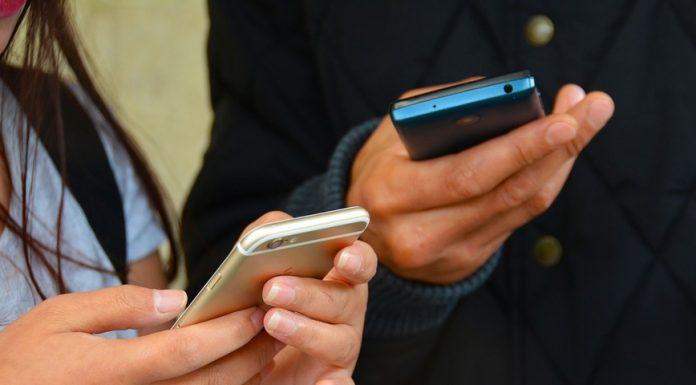(Seven years ago, the former New York City Schools Chancellor said the city’s decision to lift a ban on cell phones in schools was “common sense.”
Last week, the Philadelphia Board of Education approved a contract of up to $5 million with a company that makes locking phone pouches that allow educators to make classrooms phone-free.
The two decisions and the years between highlight the ongoing debate about the proper place for phones in school in the digital era.
Schools across the country continue to struggle with the devices more than 15 years after the release of the first iPhone. Concerns about distractions in class, fights in hallways and other behavior issues have prompted bans in some schools along with statewide legislation to address the issues.
Hopewell City Public Schools, which serve about 4,000 students in Virginia, started using locking phone pouches this fall after years of trying to curtail phone use.
“While we have attempted to accommodate student phones over the years and limit their use, we are finding that they are causing much more harm than help during the school day,” district officials wrote in a letter to parents.
The Philadelphia Board of Education, which serves more than 200,000 students, voted on Oct. 20 to approve a contract of up to $5 million with the company Yondr to implement its ban on cell phones. Yondr makes a phone pouch that locks when closed. The pouches can be unlocked at the end of the school day.
“With a cell phone free environment, schools can increase engagement in the classroom,” Philadelphia district officials wrote in school board documents. “Furthermore, the absence of cell phones during the day can help lead to less incidents of cyber bullying, reducing the number of students leaving the building and returning illegally by texting their friends, and a reduction in class cuts.”
Along with phone pouches, Yondr provides schools with support including planning and policy help and training for district employees. The San Francisco-based company has been working with school districts since 2014.
The pouch “helps eliminate the power struggle if a student is caught on their phone, instead of it being a barrage of back and forth excuses,” Julia Gustafson, the company’s director of education partnerships, said in an email to The Center Square.
Officials with Hopewell City Public Schools said they see the pouch as a compromise.
“Students continue to have their phones on them and be able to use them before and after school for emergencies or any other personal reasons as they have access,” Byron Davis, a district spokesperson, said in an email to The Center Square.
“They maintain their property and are not restricted from possession during the day, but are limited in that they cannot access phones while instruction and testing are the focus,” he added.
Davis said enforcing a ban on phones can create additional distractions.
“When you tell students to simply not have cellphones in class, that is something that still needs to be enforced, and without fair and consistent enforcement, a whole bunch of other problems can be created (e.g. distractions from learning, cheating on tests, coordination of violence, cyberbullying),” he said. “The practice Hopewell presently has effectively addresses the concerns while allowing for possession and before and after school use.”
Davis also said the district has plans in place in case of an emergency.
“Emergency protocols and communication methods already exist in the event there is a crisis on campus, however, on a case-by-case basis, school administration has the ability to unlock pouches and provide students access to their phones as appropriate,” he said.
The Enlarged City School District of Middletown in New York sent a letter to families noting the district’s new policy that “cell phones must be turned off and put away during the school day.”
The district’s policy means students “will not have access to their cell phones at any point during the school day,” including study hall and lunch periods, Superintendent of Schools Amy Creeden wrote in a letter to parents.
Students can use their phones before and after school and parents who need to contact a student at school were asked to call the school office instead of their child’s cell phone.
Most U.S. school districts have policies or practices to limit phone use during the school day, especially in class, but the policies can vary significantly by state, district and school. Nearly 77% of schools prohibited non-academic use of cell phones or smartphones during school hours as of 2020, according to the National Center for Education Statistics.
In California, lawmakers passed a law in 2019 that allows, but doesn’t require, school boards to enact policies to limit student smartphone use while at school, according to the California School Boards Association.
Utah Gov. Spencer Cox wants to “get cell phones out of our classrooms.” The Republican governor said he wants cell-phone free environments – not just turning phones off, but not carrying them.
In Michigan, a Republican lawmaker has filed a bill that would require school districts to adopt a policy that bans the use of cell phones by students during the school day starting in the 2022-2023 school year.
Before New York City lifted its ban in 2015, the city’s 1.1 million students were required to leave their cell phones at home. Many students opted to leave their phones outside the school building by paying a daily fee for private storage.
“Lifting the cell phone ban is about common sense, while ensuring student safety as well as high-level learning in our classrooms,” New York City Schools Chancellor Carmen Fariña said at the time.
After lifting the ban, the city’s new policy allowed for each school’s principal to develop a cell phone policy tailored for their students.

